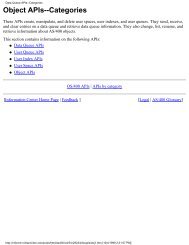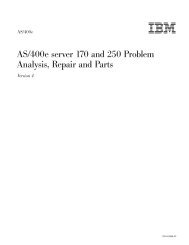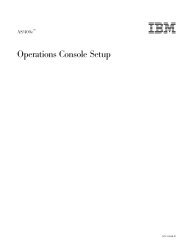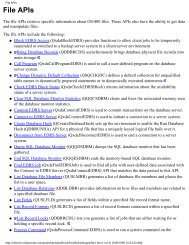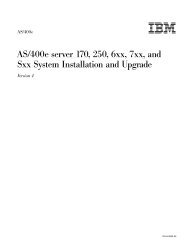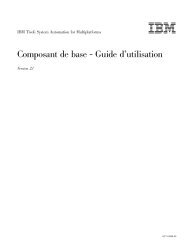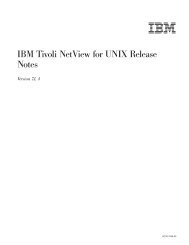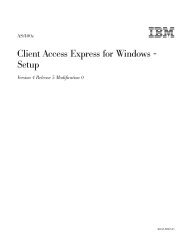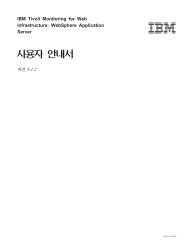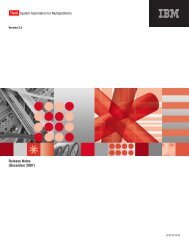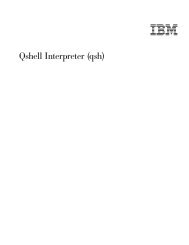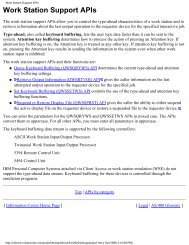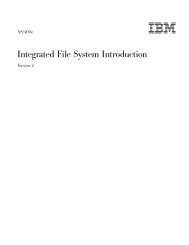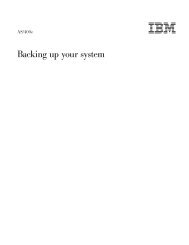You also want an ePaper? Increase the reach of your titles
YUMPU automatically turns print PDFs into web optimized ePapers that Google loves.
Table 1. <strong>File</strong> Types and Their Main Operations<br />
programs processing files for output, the last buffer of data is written.<br />
For those programs processing files for input, an end-of-file condition is<br />
forced for the next input operation.<br />
RELEASE<br />
Detaches a device or a communications session from an open file. I/O<br />
operations can no longer be performed for this device or session.<br />
CLOSE<br />
Detaches a file from a program, ending I/O operations. Any remaining<br />
data in the output buffer that has not been written will be written prior<br />
to the completion of the close.<br />
The operations listed above have certain restrictions based on file type and<br />
language support. For example, a program may not write to a file that has been<br />
opened for read only. Similarly, a read-by-key may not be issued for an ICF file.<br />
Since file overrides can occur during processing, an operation may not be allowed<br />
for the type of file that is ultimately being processed. See Chapter 3. Using<br />
overrides, for additional information.<br />
Table 1 on page 4 lists the file types and the main operations that are allowed.<br />
There are additional functions supported for some file types that are accomplished<br />
by additional operations or changes to these operations. For information on these<br />
additional functions and how the operations given here apply to display, tape, and<br />
diskette files, refer to either the Application Display Programming, SC41-5715-00 book<br />
or the Tape and Diskette Device Programming, SC41-5716-01 book. For equivalent<br />
information for database, ICF, DDM, printer, and save files, refer to the 5701 book,<br />
the 5442 book, the 5307 book, the 5713 book, and the 5304 book, respectively.<br />
Table 2 on page 6 and Table 3 on page 7 map the OS/400-supported operations<br />
given in Table 1 to the high-level language operations (BASIC, ILE C, ILE COBOL,<br />
PASCAL, PL/I, and ILE RPG programming languages) supported on the system.<br />
For additional information on each operation and how it correlates to the file<br />
declaration in the program, see the appropriate language information. Note that<br />
not all OS/400 operations are supported in all languages.<br />
<strong>File</strong> Types<br />
Operation<br />
OPEN<br />
Database Diskette Tape Printer Display ICF DDM Save<br />
Read X X X - X X X X<br />
Write X X X X X X X X<br />
Update X - - - X 1<br />
- X -<br />
Delete X - - - X 1<br />
- X -<br />
READ<br />
By relative<br />
record<br />
number<br />
X - - - X 1<br />
- X -<br />
By key X - - - - - X -<br />
Sequential X X X - X X X X<br />
Previous X - X - - - X -<br />
4 <strong>File</strong> <strong>Management</strong> V4R5



